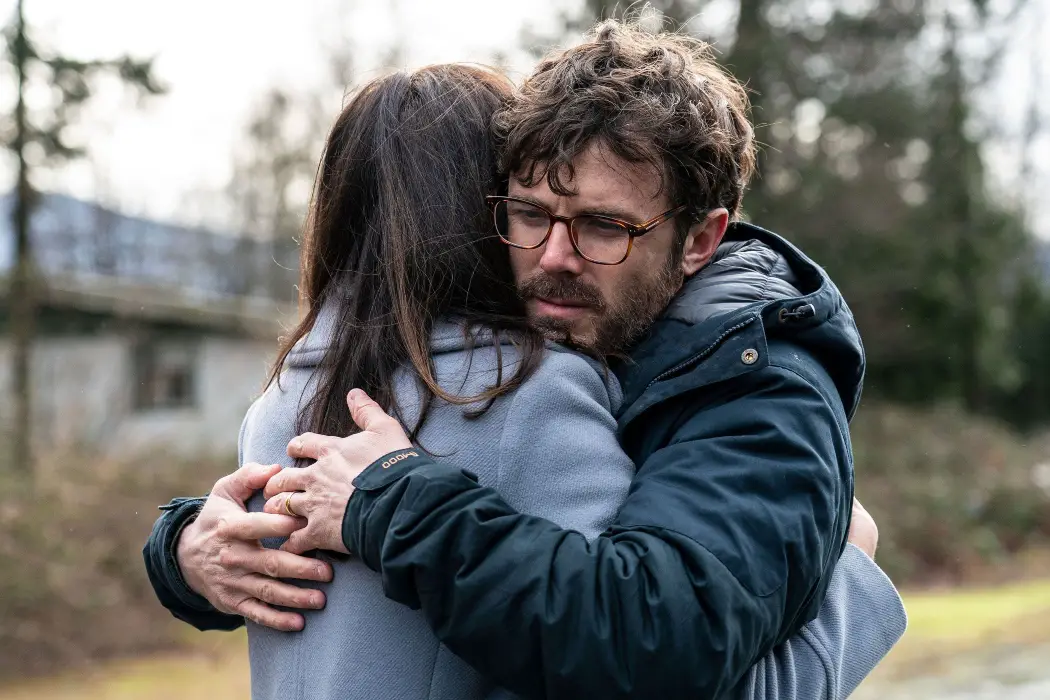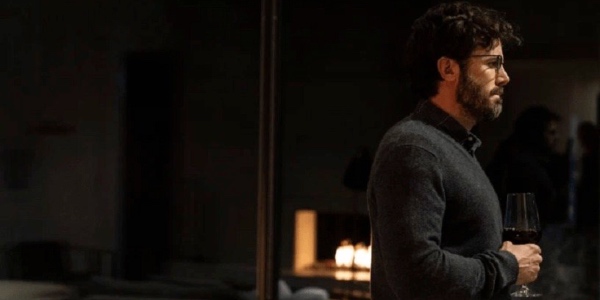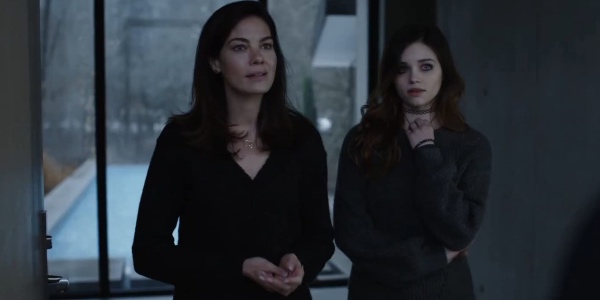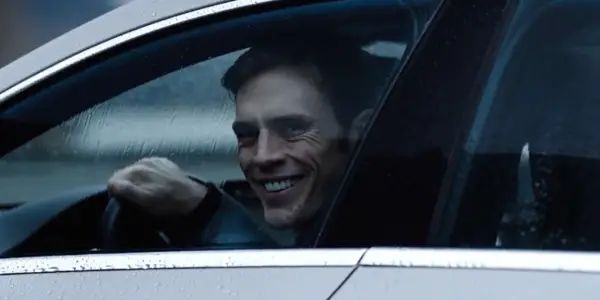EVERY BREATH YOU TAKE: A Cold Character Study

Stephanie Archer is 39 year old film fanatic living in…
Grief, loss, and loneliness are far from new examinations within film. Yet, with a unique individuality within the emotion, there is never a shortage of perspectives a film can encompass. While not always on the mark, Every Breath You Take, from director Vaughn Stein, is the latest film to tackle these emotions, infusing a character study with the suspense of danger and mystery.
A Solid Start
The opening of Every Breath You Take is immediately intimate, extreme close-ups capturing the exchange between mother and son as they are on their way to hockey practice. “Sometimes we need to do things that scare us in order to grow” – while the mother speaks this to the son, these words overarchingly encompass the film and its direction, the path of grief and recovery terrifying but necessary to move forward.
In an instant, the camera leaves the intimacy within the car, taking in the entirety of the road and intersection as a car slams into the side of the mother’s car. Every Breath You Take does not give an explanation as to what has happened, or to the immediate devastating after-effects of the accident. As quickly as it happens, it is over, the title card for the film appearing and a quiet breath taken. It is an effective opening that will capture the attention of viewers and pierce the hearts of those who can immediately empathize with the grief that is to follow.

From this moment on, there is no intimacy in the shots or framing within Every Breath You Take. Colors are leeched from the film’s palette and characters are physically distanced (and separately introduced) within a rigidly shaped house, the open space speaking to the desperation the family is experiencing through their grief. It is a strong continuation of the opening scene, quietly building on the unspoken death of their son, mirroring the lack of communication between father, mother, and daughter.
The question the film immediately poses is how can Grace (Michelle Monaghan) sell the perfect home and Phillip (Casey Affleck) truly help his patients when they themselves are empty and unable to heal and communicate. It is an intimate examination as to how far distanced we are, especially as we are invited to witness the internal struggles they keep from each other.
“one thing to face a hard truth but another to act on it”
The intensity of the film does not begin however until one of Phillip’s patients, Daphne (Emily Alyn Lind), who he had previously opened up to personally in an attempt to reach her, commits suicide after the devastating loss of a friend. As Phillip is called to identify the body, James Flagg (Sam Claflin) arrives, finding he is forced to accept the same grief as Phillip has done. With the loss of his sister, James works to navigate his life without her, finding himself drawn to Phillip and his family.
As this is the moment the film begins to pick up, it slows down all the same. It wants to continue the deeply invested character study into a grieving family while attempting to infuse intensity from an opposing force. While at times it succeeds, other times it falls short.

One of the main reasons is the lack of mystery shrouded within the film. Too quickly, audiences are given the pieces to understand not only what is going on but who is behind the film’s “mystery”. Secondary, the aspects of Every Breath You Take, where narrative exposition is introduced to push Phillip and the narrative forward, feels more like a voice-over video game than fuel on the fire of intensity. These moments are especially prevalent in the conversations shared between Phillip and Vanessa (Veronica Ferres) following the death of his patient.
With overall predictability and breaks in the allure of the film, Every Breath You Take culminated into a lackluster finale that should have been the outstanding climax of the film. It’s hard to say whether it is because we have heard this story before in one way or another, or if the lack of empathy for the characters leaves little in the way of fear regarding their well-being.
A Light at the end of the tunnel
While the film has its bumps in the roads, it also has its moments that speak to the skill it was truly striving for. As mentioned earlier, Every Breath You Take boasts a leeched color palette, speaking to the grief, depression, and loneliness of its characters. Yet, often bright oranges and bluish greens appear, speaking to the hope for a better future. Many times, this orange lighting is in the presence of the daughter Lucy (India Eisley). While Grace and Phillip may have lost a child, they still have another. She is a beacon of light, even while struggling with her own grief and loneliness, she is the future.
The film also finds its pensive moments through the small bits of tranquility each character is able to find looking over the water. It is in these moments the film is able to reset and navigate back to its central characters and direction.

Every Breath You Take also boasts impressive performances overall from its cast. Casey Affleck, Sam Claflin, Michelle Monaghan, and India Eisley each are able to tap into a unique perspective of grief, bringing to life the individuality of loss. Further compounding their performances, Casey Affleck and Megan Monohan tackle the layered destruction and rebuilding of their character’s relationship, both separately and in unison. There is clear chemistry and vision displayed in the portrayals they each bring to life.
Sam Claflin brings a dark performance, expanding outward from the generally “good guy” role he has played in the past. There is a flicker of madness in his eyes, all while uttering sweet-nothings to those he is with. There is an unpredictability masked within a cool exterior. At one point, there is even a moment I found myself thinking back to Matthew Lillard’s performance in Scream, especially towards the film’s conclusion.
Conclusion: Every Breath You Take
While a bumpy ride to the end, Every Breath You Take is an intriguing character study that examines grief and loneliness while infusing intensity and thrills. While it threatens to lose its audience at various times, coming off more like a video game than a while some crafted film, there is still much to enjoy and take in.
Have you seen Every Breath You Take? What did you think? Let us know in the comments below!
Every Breath You Take will be released in theaters and VOD on April 2, 2021.
Watch Every Breath You Take
Does content like this matter to you?
Become a Member and support film journalism. Unlock access to all of Film Inquiry`s great articles. Join a community of like-minded readers who are passionate about cinema - get access to our private members Network, give back to independent filmmakers, and more.













